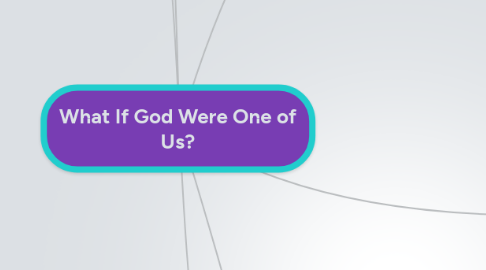
1. Humanism In Europe
1.1. Humanism
1.1.1. Early Thinkers
1.1.1.1. Christian Clerics
1.1.1.2. Problem Solving
1.1.1.2.1. Intellectual Inquiry
1.1.1.2.2. Life's Issues
1.1.2. Early European Definition
1.1.2.1. Petrarch
1.1.2.1.1. Provided Remedies for Ambiguities of life
1.1.2.1.2. Earthly Problems
1.1.2.1.3. Soul's Eternal Desitiny
1.1.3. Humanists
1.1.3.1. Address moral struggles of Humanity
1.1.3.2. Audience
1.1.3.2.1. Those Striving for Salvation
2. Humanism in the United States
2.1. Struggle to Find Life's Meaning and Purpose
2.1.1. Humanism Found to Be Useful
2.1.1.1. Some Humanists Challenged Christianity
2.1.1.2. Some Stayed Mindful and Respectful of the Christian Population
2.1.1.2.1. Efforts to Disprove or Challenge Christianity Were rarely Undertaken
2.1.1.3. Many Individuals Still Turned to Christian Teachings for Guidence
2.1.1.4. Humanism Grew Continually
2.1.1.4.1. Age of Philosophers
3. African American and Humanism
3.1. African Americans Sought for Reorientation in the US
3.1.1. Christianity
3.1.1.1. Bible Interpreted for justification of oppression of African Americans
3.1.1.1.1. African Americans Struggle to Accept Theism Due to Absurdity and Hypocrisy of Slave Trade
3.1.2. Humanism
3.1.2.1. African American Renaissance
3.1.2.1.1. Rejection of Sanitized Depictions of Life
3.1.2.2. Advances of Humanism in African American Culture
3.1.2.2.1. James Weldon Johnson
3.1.2.2.2. James Baldwin
3.1.2.2.3. J. Saunders
3.1.2.2.4. Alice Walker
3.1.2.2.5. African American Humanists
3.1.2.3. Very Little evidence of Humanism in African American Communities
4. Black Humanism and the Unitarians
4.1. Existential Experience of Being Black
4.1.1. Unitarian Structure
4.1.1.1. Black Humanism
4.1.1.1.1. Black Unitarian Universalist Caucus
4.1.1.1.2. Black Involvement in Unitarian Church
4.2. Unitarian Universalist Association
4.2.1. Humanist
4.2.2. Struggle with Race
4.2.2.1. Empowerment: One Denomination's Quest for Racial Justice 1967-1982
5. African America For Humanism
5.1. Norm Allen Jr.
5.1.1. Questioned Christianity
5.1.1.1. Born Again
5.1.1.1.1. Rejected again
5.1.2. International Advisory Board
5.1.3. African American Humanist Declaration
5.1.3.1. African Americans for Humanism
5.1.3.1.1. Against Racism
5.1.3.1.2. Afro-centric view into World Perspective
5.1.3.1.3. Discover African American Contribution
5.1.3.1.4. Conscious Living Through Thought and Observation
5.1.3.1.5. Solve Problems in African American Communities with Education and Self-reliance
5.2. Council for Secular Humanism
5.2.1. Can Be Viewed as Religious due to Providing Orientation or Direction for Life
5.3. Humanist Organization
6. African Americans and the Problem of Evil
6.1. Religion is Not Dying
6.1.1. Provides Language for Making Sense of the World in Affirming Ways
6.1.2. Emerges in New Forms of Expressions
6.1.2.1. Humanism Provides Ways of Looking at Meaning of Life in Ways that Are Restricted in Organized Religion
6.1.2.1.1. Humanism Resolves the Problem of Evil Through an Appeal to Human Accountability
